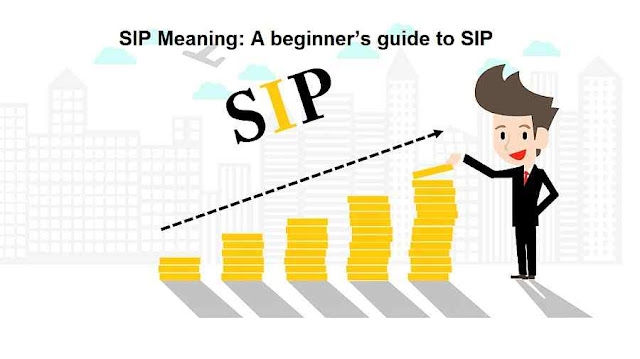in SIP mutual funds but don’t know what it really is? Don’t worry because this
article will explain you the SIP meaning and tell you exactly how SIP works.
Read this article further to also know how you can start investing in SIP.
What is
SIP?
as the name suggests allows you to invest in mutual funds in a systemic way.
There are primarily two ways of investing in mutual funds; with a lump sum
amount and through SIP. Systemic Investment Plan gives you control over how
much money you can afford to spend on investing in mutual funds. It also
enables you to choose the frequency of the investment like weekly, quarterly,
monthly, yearly, etc. This gives investors the freedom to customize their
investment through SIP and gain good returns from mutual funds.
How
Does SIP Work?
enables you to invest money in a weekly, quarterly, monthly and yearly
frequency. The minimum amount that you can invest is INR 500 with no maximum
limit. The investment grows according to the market movement over a period of
time. The longer the investment the better the returns. This works on the
compounding effect of interest that enables you to high returns on longer
investments.
How to
Start SIP Investment?
by following the steps given below:
- Firstly, you need to complete your Know
Your Customer (KYC) which is a mandatory requirement to start investing in
Mutual Funds. For KYC, you have to submit your identity proof, address proof and a passport-size photograph. - After you have finished the KYC, there
is an In-Person Verification (IPV) that needs to be done. Many funds
houses also enable you to carry out the IPV via video call. - Now, you can look for a fund house
where you want to start the SIP and create a new account on their website.
Your bank details will be required to complete the registration process. - Once you have successfully created an
account, you can log in and choose the mutual fund scheme of your choice
and start investing.
entire process via eKYC which requires you to have an Aadhaar card. In eKYC,
you have to enter your Aadhaar number and authenticate it by entering the
One-Time Password (OTP) sent to your phone. All of your basic information
present in the UIDAI database will be pre-filled on the form. But the setback
of using eKYC is that it limits you to invest only INR 50,000 in one financial
year.
Benefits
of Investing in SIP
I.
Convenient
For Investors
Investment Plan makes investing convenient by deducting the concerned amount
directly from your account on a specific date. According to the frequency
chosen by you, the deductions will take place without you having to keep a tab
on it.
II.
Power
of Compounding
is where interest earned on your principal amount gets accumulated and starts
earning interest as well. You earn better returns over a long period because
the interest keeps getting compounded and accumulates to earn more interest.
The trick here is to hold your SIP investment for a long duration to take advantage of
the power of compounding.
III.
Minimal
Risks
enables you to stop your investment in case of unfavorable conditions like the
fund manager of a well-doing fund changes or you cannot afford to invest your
earnings anymore. Compared to a lump sum investment where you input a huge
amount altogether at once, SIP consisting of monthly investments gives you more
flexibility over discontinuing the investment.
IV.
Rupee
Cost Averaging
understand Rupee Cost averaging, you have to understand NAV or Net Asset Value.
NAV is the value for which you buy or sell a mutual fund unit minus the
liability value per unit. There is a difference in NAV when you buy a mutual
fund scheme by investing via lump sum and SIP.
Let’s assume you buy 300 units for INR 60,000 in December by investing a lump
sum amount. During this period the NAV is 200. But on the other side, your
friend bought 100 units for INR 20,000 through SIP when the NAV was 200 in
December. In January, the NAV rises to 250 which leads to your friend to buy 80
units for INR 20,000. But in February, the NAV goes down to 100 which earns
your friend 200 units for INR 20,000.
now if you compare both your investments, you gained 300 units for your
investment of INR 60,000 whereas your friend gained 380 for the same amount
because of the fluctuation of the market. You bought 300 units for the cost of
INR 200 per unit but due to rupee cost averaging, your friend was able to buy
380 units for INR 157.89. This is the benefit of rupee cost averaging that you
can take benefit of through SIP investment.


